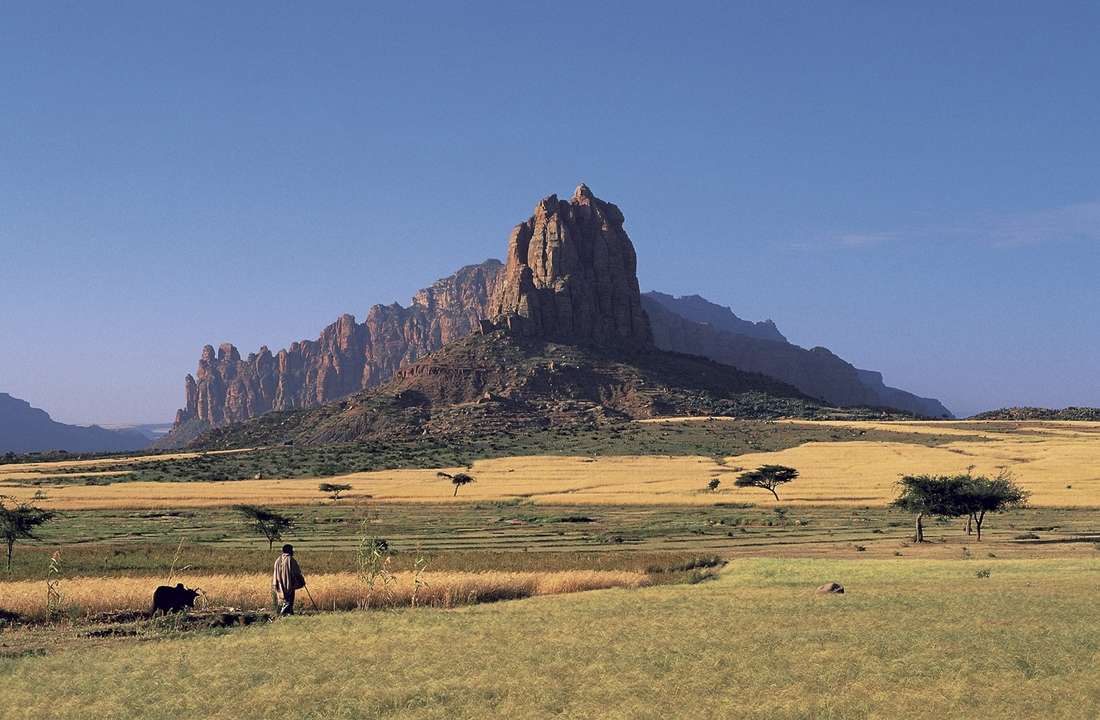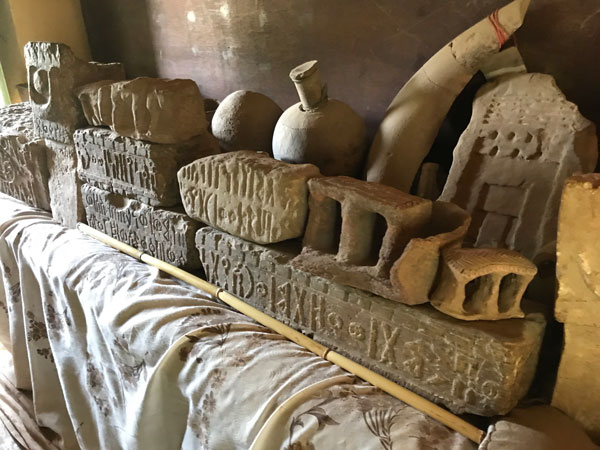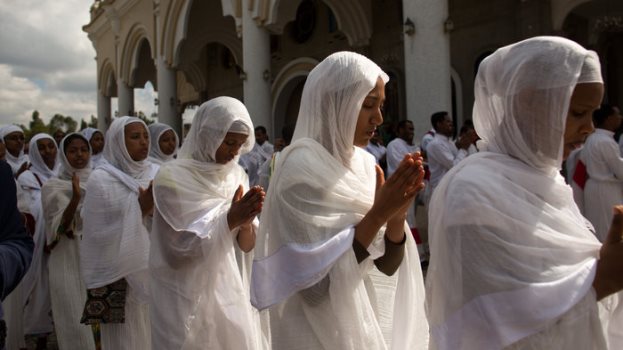Ethiopia: Genna Cultural Tour
A cultural tour in Ethiopia - explore the UNESCO heritage rock-hewn churches at Lalibela with us!
January 4th-15th, 2026
January 4th-15th, 2027
Registration: OPEN (Max 14 participants)
Arrive-Depart Addis (airport designation ADD)
This cultural tour in Ethiopia features a 12-day overland itinerary (11 nights inclusive), together with 4 domestic flights
Visas: obtained online ($52 for US passport holders)
Group Size: maximum 14 guests (only a deposit secures a place in this small-group tour)
Tour Leaders: Christian Sefrin, Invited specialists and guest musicians
Brochure:
Contact us for the invitational tour brochure and registration form. Email: admin@johngrahamtours.com
Registration:
Submit registration form
Send deposit of $1000 to secure your place (details in registration form)
Accommodation will be in the best available hotels and traditional lodges (full details in the brochure). The locations include Addis, Lalibela, Gondar, Simien, Bahir-Dar, Sidama, and Arba Minch.
Travel will be overland only locally around cities. Otherwise we travel by short domestic flights between regional centers.
Fees:
See brochure for details about fees including domestic flights, single supplements, and extension tours.
Gold: 5% discount
Silver: 5% discount
Pre-Tour Options
Add a 3-day pre-tour extension trip to the medieval Islamic city of Harar! Details in the brochure.
Post-Tour Options
Add a 5-day post-tour extension trip to the federation of indigenous people's region in southern Ethiopia! Details in the brochure.
Included:
Accommodation in high quality best-available boutique hotels specially vetted for comfort and location
All ground transportation including airport transfers
All meals with wine/beer as noted in itinerary
All entrances
Guides
Entertainment (traditional singers)
Water on the bus, snacks (we pamper our guests!)
Not Included:
Airfare
Tips for primary guides and driver
Personal services (laundry)
Mobility-Fitness:
Standard: 5/10 on the mobility scale (10 being the most demanding).
General fitness required. There are stairs to the churches. We will have some walks, but nothing strenuous. Walks are on uneven rocky terrain, sturdy footwear required. If walks are too demanding there is always an option to skip the walk.
Special Notes:
Flagship itinerary, most popular destinations, UNESCO heritage sites, special access events, traditional music!
Best available hotels
Lots of arts and music on this itinerary
Plenty of walks. Optional vigorous walks.
Weather:
January is dry season weather. Lots of sunshine! Prepare for temperatures between 65-85F, dry heat in the north, humid heat in the African Rift Valley.
Tour Videos (Ethiopia)
Travel Program...
This newly developed tour program offers a unique entry into the culture, religion, and landscapes of Ethiopia. Our tour begins and ends in Addis, the thriving cultural and business capital city of Ethiopia and home to the Assembly of the African Union. During our brief time in Addis, we will tour two worthwhile museums and visit one of the sprawling marketplaces where the commerce of the city is conducted.
The tour really begins after a short flight to Lalibela, the small city in the hills where a medieval king spent decades carving a ‘new Jerusalem’ into the surrounding sandstone rock. The product of this industrious and ambitious undertaking is eleven UNESCO-recognized world heritage churches carved in two open-air rock-hewn complexes deep into the ground. We are timing our visit with the holiest Christian holiday for locals - Genna (Nativity) - where we will immerse ourselves in the pilgrim experience of ritualizing the miracle of Christ’s birth. We may choose to don the traditional ‘netela’ - a white ritual garment worn by pilgrims when they enter religious spaces, in order to observe the incredibly elaborate ritual dances of hundreds of deacons. Local youth groups sing exuberant hymns accompanied by rhythm instruments such as cymbols and drums.
After two full days in Lalibela, we will take a short flight to Gondar, the capital city of a large kingdom in the 15th-17th centuries. The heart of the city is dotted with historic castles, bath houses, and churches related to the golden era of this kingdom, whose artists pioneered new fresco styles in all of the churches of the region. In Gondar, we will find a local performance of Ethiopian traditional dance by one of the University student groups, and partake in a traditional coffee ceremony that involves roasting the beans, heating the coffee in sand, and serving it piping hot in small cups. On a long day trip, we travel north towards the Simien National Park (Roof of Africa) to observe the herbivorous Gelada monkeys and marvel at the spectacular vistas to the north.
In Bahir Dar, a city on the coast of serene Lake Tana where the Blue Nile begins its long voyoge north to the Meditterranean, we will spend a day boating to some of the 40 islands to observe unique wildlife including hippos. Landing on each island, we’ll walk along forested trails frequented by pilgrims over many centuries to the monasteries, where local guides explain frescoes, music, and local beliefs and traditions.
In place of the Tigrai region, we are delighted to add a special trip to the Sidama region near the Great African Rift Valley in south-central Ethiopia. After flying into Hawassa, we will drive around one of the many large lakes in the valley, arriving at the fantastic Aregash Lodge. The next day, we will walk through coffee-cultivated forests interacting with the local people, learning about their traditional cuisine, music, religious views, with several surprises planned. There is abundant wildlife in the area which we will hope to see.
After a day in the village, we’ll load into jeeps and drive south along the valley rim and through rolling hills of cultivated false banana fields until we arrive at Lake Chamo where we’ll stay in the unbelievably beautiful Paradise Lodge for our final night. The cultural highlight will be visiting the Dorze tribe, whose intricately constructed woven houses look like elephant heads, and whose loom-woven textiles are coveted throughout Ethiopia. They ferment enset leaves underground, later baking the pulp into bread, a process that we will learn about while also hearing their traditional music and tasting local honey from tree honeycombs.
Before flying back to Addis, we’ll offer an optional early-morning boat excursion on Lake Chamo to view the great Nile crocodiles, hippos, fish eagles, and other extraordinary wildlife in their natural habitat.
Throughout the tour, our meals will be simple but delicious affairs: a combination of Ethiopian traditional ‘injera’ - a pancake-like bread used to scoop up various savory stews from large common plates - and Ethiopian-Italian fusion relying heavily on pastas and fresh salads. Ethiopia wines include the sweet tej honey wine, as well as Italian-style reds, while beers are typically light lagers.
We will be staying in the best possible accommodation available, all Ethiopion establishments. It is a wonderful experience to sleep in the traditional Ethiopian round houses called ‘tukul’, which are featured in several of the lodges that we have chosen. All rooms are ensuite, provided with all amenities (see details on the Accommodations page).
Guests may choose to extend their exploration of Ethiopia: visit the medieval Islamic city of Harar in the East, or the indigenous region in the Omo Valley (see Extension Trips page).
Tour Videos (Processions, Ethiopia)
Tour Destinations:
Addis
+ Addis, the capital city of Ethiopia, is a 20th century city situated in the center of the country at an altitude of 7,700 feet. In addition to being home to some four million Ethiopians, it is the headquarters for the African National Assembly and many international organizations working in the African continent. Our visit here will focus on two of the more important museums, as well as one of the large marketplaces.
Lalibela
+ One of the Christian kings declared Lalibela a "new Jerusalem" in the 10th century, and proceeded to sponsor increasingly ambitious construction projects building a series of magnificent churches that are now UNESCO heritage sights. Only, these churches are not built above ground, but dug straight down into the sandstone bedrock. Our visit will coincide with the largest celebration of the year, Nativity ("Genna"), which is celebrated on January 7th. There we will intermingle with thousands of white-clad pilgrims who have traveled from far and wide to witness the important dawn celebration at the iconic Church of St. George.
Gondar
+ Gondar is an ancient city with both a Jewish and Christian heritage. It became an important capital city in the early 1600s, when Christian kings forced out of their northeastern provinces by Ottoman-backed Muslim invaders established their residency in Gondar. To this day, the center of the city is dominated by an impressive array of medieval-looking fortresses.
Simien National Park
+ We will take a day trip to the Simien National Park, dubbed the "Roof of Africa" because of its peaks that rise to almost 15,000 feet. Here we will marvel at the spectacular views as the land drops away to the north several thousand feet over the 'escarpment.' On our walk in the region, we will look to find the "red-hearted" Gelada monkeys, ibex, and the Ethiopian wolf which can sometimes be spotted with binoculars.
Bahir Dar - Lake Tana
+ While in Bahir Dar, the main attraction will be a day spent boating on Lake Tana, the headwaters for the Blue Nile River. An abundance of wildlife lives here, especially raptors and water birds. We will hike through a coffee forest at one docking to visit a medieval round church with incredible frescoes, and later go to the marshlands where hippos live to see if we can spot them (from a distance).
Sidama
+ This region of rolling hills is on the rim of the Great African Rift Valley. The predominant agricultural is coffee cultivation, which means lots of shade forests! There are many lakes and national parks in the region, with abundant wildlife.
Arba Minch
+ Further south, we enter the lush sub-tropical region of Arba Minch in order to visit the wildlife refuge at Lake Chamo. We will also spend an afternoon with the Dorze tribe interacting with their local guides, learning about their traditional architecture, cuisine, song, dance, and famous loom textile art.











































